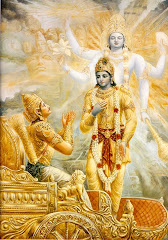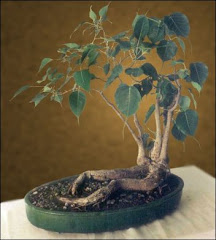
I am in a reminiscing mood today. I am reminiscing about my childhood. It is often said that 'childhood' is the best time/period in a person's life. It is certainly true, though debatable - it depends from person to person, I would say. I enjoyed my childhood - it was a 'carefree' time - with hardly any dark cloud in the shape of 'worries' in the horizon. Except perhaps 'exam time' - when we would invariably be down with 'exam fever!'
Apart from all the other 'perks' that childhood brought in, the one that I cherish the most is the opportunity to grow up with several 'characters'. No, not friends, but 'characters'.
Birbal, Tenali Rama, Mullah Naseeruddin, Gopal Bhaand, Handa and Bhonda, Nonte - Phonte, Bantul - The Great, Archie, Tintin, Captain Haddock, Calculus, Superman, Spiderman, Phantom, Mandrake, Shikari Shambu, Suppandi, Asterix and Obelix, Mickey Mouse, Donald Duck, Tom and Jerry, Tarzan, Mowgli, Bagheera, Shere Khan, Kalia - the witty crow, Keechu and Meechu - the cute rabbits, Tantri - The Mantri, Cinderella, Snow White, Gulliver, Hansel and Gretel, Pinocchio, Winnie - The Pooh, and many more. I was 'introduced' to these 'characters' gradually - through the Aesop's Fables, through several comic books: the 'Amar Chitra Katha,' the 'Tinkle,' through the 'Panchatantra,' among others and with the passage of time 'they' became more than my friends.
Most of us, if not all of us grow up with them; some of them, if not all of them, that is. And in the process, these 'characters' leave their 'footprints' on our minds and thoughts. In other words, they too become a part of us.
I felt like to write about a few of these 'characters' - not in one day of course - by and by. I chose 'Mullah Naseeruddin' to begin with.
'Mullah Naseeruddin' is known for his wit and sense of humour all over Asia. The anecdotes attributed to him reveal a satirical personality with a biting tongue that he was not afraid to use even against the most tyrannical rulers of his time. This fictional character has innumerable stories attributed to him - it goes without saying that all these stories were sardonic, witty and full of wisdom. He was a 'study in contrast.' Much of Naseeruddin's actions can be described as illogical yet logical, rational yet irrational, bizarre yet normal, foolish yet sharp and simple yet profound. What adds even further to his uniqueness is the way he gets across his messages in unconventional yet very effective methods and in profound simplicity. 1996–1997 was declared the "International Naseeruddin Year" by the UNESCO.
Mullah Naseeruddin's name is also spelled differently in various cultures, viz.: Nasrudeen, Nasrudin, Nasr ud-Din, Nasredin, Nasreddin, Nasreddin, Nasr Eddin, Nastradhin, Nasreddine, Nastratin, Nusrettin, Nasrettin, Nostradin and Nastradin (lit.: Victory of the Deen or Faith). His name is sometime preceded or followed by a 'title of wisdom' used in the corresponding cultures: "Hoxha", "Khwaje", "Hodja", "Hojja","Hodscha", "Hodža", "Hoca", "Hogea", "Hodza", "Effendi" or "Affandi", "Mullah", among others.
This legendary satirical sufi figure is believed to have lived during the Middle Ages (around the 13th century) - in Anatolia; he was born in Hortu Village in Sivrihisar, Eskişehir (meaning: "Old Town," is a province in northwestern Turkey) in the 13th century, then settled in Akşehir and later in Konya, under the Seljuq rule (Wikipedia). He is believed to have died here (probably born in 1209 CE and died 1275/6 or 1285/6 CE). Many nations of the Near, Middle East and Central Asia claim 'Naseeruddin' as their own (i.e. the Afghans, Iranians, Turks, and Uzbeks). The "International Nasreddin Hodja Festival" is held annually in Akşehir (a town and district of the Konya Province in the Central Anatolia region of Turkey) between July 5–10 every year.
In Russia, "Naseeruddin" is because of the brilliant novel "Tale of Hodja Nasreddin" written by Leonid Solovyov (wikipedia). The English translation: "The Beggar in the Harem: Impudent Adventures in Old Bukhara." A collection of very short stories based on Mullah Naseeruddin was compiled by the renowned Indian (bengali) filmmaker Satyajit Ray (audio and http://www.satyajitray.org/ - to know more about him) and published as "Mullah Naseeruddiner Galpo" (the Stories of Mullah Naseeruddin).
With the passage of time, new stories were added, others were modified, and the character of Mullah Naseeruddin and his tales spread to other regions. The themes in these tales have become a part of the folklore of a number of nations and therefore express the national imaginations of a variety of cultures. Although, most of them depict Naseeruddin in an early small-village setting, the tales (like the Aesop's fables) deal with concepts that have a certain timelessness.
Today, Nasseruddin stories are told in a wide variety of regions, and have been translated into many languages. I have compiled a few of them. Read on:
1) Once, Mullah Naseeruddin was travelling by train. The Ticket collector asked him for his ticket. To his embarrassment, the Mullah could not find his ticket. He searched all the crevices and pockets of his long overcoat but still could not find it. He became embarrassed and miserable and started sweating. But he would not check his right pocket. The ticket checker asked him, "Why don't you check your right pocket?" Mullah Naseeruddin replied "That is my last hope and if I do not find it there I will be more miserable, so I would rather not check it there."
2) One day, Mullah Naseeruddin was informed that his mother-in-law had drowned. He rushed to the river and asked to be shown the spot where she had drowned. He started walking upstream. Surprised, his friends said "Wouldn’t it be better if they went downstream?" He replied, "You probably don’t know the lady, she acted obsessively differently from normal people. I am certain we will find her body somewhere upstream."”
3) Delivering a Khutba: Once, Nasreddin was invited to deliver a 'khutba' (Islamic sermons/lectures/talks). When he got on the 'minbar' (pulpit), he asked, "Do you know what I am going to say?" The audience replied "NO." So he announced, "I have no desire to speak to people who don't even know what I will be talking about!" and left.
The people felt embarrassed and called him back again the next day. This time, when he asked the same question, the people replied "YES". So Nasreddin said, "Well, since you already know what I am going to say, I won't waste any more of your time!" and left.
Now the people were really perplexed. They decided to try one more time and once again invited the Mullah to speak the following week. Once again he asked the same question - "Do you know what I am going to say?" Now the people were prepared and so half of them answered "YES" while the other half replied "NO". To which, Nasreddin said, "The half amongst you, who know what I am going to say can tell it to the other half," and left.
4) Two sides of a river: Nasreddin sat on a river bank when someone shouted to him from the opposite side:
- "Hey! how do I get to the other side?"
- "You are on the other side!" Nasreddin shouted back.
5) Whom do you trust: A neighbour arrived at the gate of Mulla Nasreddin's yard. The Mulla went out to meet him.
"Would you mind, Mulla," the neighbour asks, "lending me your donkey today? I have some goods to transport to the next town."
The Mulla doesn't feel inclined to lend out the animal to this particular man, however; not to appear rude, he answers:
"I'm sorry, but I've already lent him to somebody else."
Suddenly the donkey was heard braying loudly behind the wall of the yard.
"You lied to me, Mulla!" the neighbour exclaims. "There it is behind that wall!"
"What do you mean?" the Mulla replies indignantly. "Whom would you rather believe, a donkey or your Mulla?"
6) Taste the same: Some children saw Hodja coming from the vineyard with 2 basketfuls of grapes on his donkey, gathered around him and asked him to give them some.
Hodja picked up a bunch of grapes, cut it up into pieces and gave each child a piece.
"You have so much, but you gave us so little," the children complained.
"There is no difference whether you have a basketful or a small piece. They all taste the same," Hodja remarked.
7) Once, a thief entered the house of Mullah Naseeruddin. It was night time, and hence dark. Mullah Naseeruddin awoke and saw the thief in his house. He took a lantern and started following him. Wherever the thief went, Mullah Naseeruddin would show him the way. The thief said, "What is the matter? Why are you showing me the way? I have never been to a house where the owner himself shows me the way. Why are you showing me the lantern?" Mullah Naseeruddin said, "I have been staying here for 20 years. I have never found anything in this house and you are trying to find something in the dark. So let me at least show you some light. Maybe you will find something. Then we can do half-half (fifty-fifty)."
8) The Mullah was seen astride his donkey dashing through town at an unseemly rate of speed. "Why are you going so dangerously fast, Mullah?" "Don't ask me, ask the donkey" replied the Mullah.
9) One day Mulla Naseerrudin's wife was cooking in the kitchen. All of a sudden, a very loud noise emanated from the drawing room. She went running to the room and found Naseeruddin sitting there. She asked him regarding the noise. Mulla replied, "My robe fell down." She asked, "How can a robe make such a big noise?" Mulla replied, "I was inside the robe!!"
10) In the middle of the night, Mullah Nasrudin wakes up - feeling terribly thirsty. It’s cold and dark outside, and it’s quite a bit of a walk to the well, so the Mullah hastily winds a turban around his head for warmth, and finds a lamp to carry with him. The lamp is empty, and while he’s trying to fill it in the dark, he spills some lamp oil, which he sleepily wipes up with the trailing end of his poorly-wrapped turban. The Mullah has some trouble lighting the lamp, and leans in close to see the wick better. The oil-soaked end of his turban catches fire. The Mullah, after racing around the room screaming for a while, has the presence of mind to run into the backyard, fling the turban to the ground, and stamp on it. The Mullah’s wife, awakened by the commotion, comes out and sees the Mullah jumping up and down on his turban. "Nasrudin!" she cries, "What on earth are you doing?" "Getting a drink of water," says the Mullah.
11) Mullah Nasiruddin on Tax cuts: Nasiruddin used to stand on the street on market-days, to be pointed out as an idiot (note: an ancient spiritual practice designed to build humility). No matter how often people offered him a large and a small coin, he always chose the smaller one. One day a kind man said to him: "Nasiruddin, you should take the bigger coin. Then you will have more money and people will no longer be able to make a laughing stock of you." "That may be true," said Nasiruddin, "but if I always take the larger coin, people will stop offering me any money to prove that I am more idiotic than they are. Then I would have no money at all."
12) As Nasiruddin emerged form the mosque after prayers, a beggar sitting on the street solicited him for alms. The following conversation followed:
"Are you extravagant?" asked Nasiruddin.
"Yes Nasiruddin," replied the beggar.
"Do you like sitting around drinking coffee and smoking?" asked Nasiruddin.
"Yes," replied the beggar.
"I suppose you like to go to the baths everyday?" asked Nasiruddin.
"Yes," replied the beggar.
".....And maybe amuse yourself, even, by drinking with friends?" asked Nasiruddin.
"Yes I like all those things," replied the beggar.
"Tut, tut," said Nasiruddin, and gave him a gold piece.
"Are you extravagant?" asked Nasiruddin.
"Yes Nasiruddin," replied the beggar.
"Do you like sitting around drinking coffee and smoking?" asked Nasiruddin.
"Yes," replied the beggar.
"I suppose you like to go to the baths everyday?" asked Nasiruddin.
"Yes," replied the beggar.
".....And maybe amuse yourself, even, by drinking with friends?" asked Nasiruddin.
"Yes I like all those things," replied the beggar.
"Tut, tut," said Nasiruddin, and gave him a gold piece.
A few yards farther on, another beggar who had overheard the conversation begged for alms also. "Are you extravagant?" asked Nasiruddin.
"No, Agha Nasiruddin," replied second beggar.
"Do you like sitting around drinking coffee and smoking?" asked Nasiruddin.
"No," replied second beggar.
"I suppose you like to go to the baths everyday?" asked Nasiruddin.
"No," replied second beggar.
".....And maybe amuse yourself, even, by drinking with friends?" asked Nasiruddin.
"No, I want to only live meagerly and to pray," replied second beggar. Whereupon Nasiruddin gave him a small copper coin.
"But why," wailed the second beggar, "do you give me, an economical and pious man, a penny, when you give that extravagant fellow an eagle?"
"Ah my friend," replied Nasiruddin, "his needs are greater than yours."
"No, Agha Nasiruddin," replied second beggar.
"Do you like sitting around drinking coffee and smoking?" asked Nasiruddin.
"No," replied second beggar.
"I suppose you like to go to the baths everyday?" asked Nasiruddin.
"No," replied second beggar.
".....And maybe amuse yourself, even, by drinking with friends?" asked Nasiruddin.
"No, I want to only live meagerly and to pray," replied second beggar. Whereupon Nasiruddin gave him a small copper coin.
"But why," wailed the second beggar, "do you give me, an economical and pious man, a penny, when you give that extravagant fellow an eagle?"
"Ah my friend," replied Nasiruddin, "his needs are greater than yours."
13) Deductive reasoning: The venerable and wise Mullah Nasiruddin was asked by an acolyte, over tea, "And how old are you, dear Mullah? "Another question I can answer," replied the humble Mullah. "I am three years older than my brother." The callow interlocutor, foolishly said: "But I spoke with your brother last year and he told me, I remember it well, that you, his older brother, were two years older than he." "Well of course," the mullah patiently explained. "That was last year. Now I am one year older. And my rate of aging is increasing. Two years ago I was one year older. Next year I will be four years older. Soon I shall be older than my grandfather, and his as well."
14) Nasruddin was throwing handfuls of bread all around his house. "What are you doing?" someone asked. "Keeping the tigers away" said Nasruddin. "But there are no tigers around here." "Exactly. Effective, isn't it?" replied Nasreddin.
15) At a gathering where Mullah Nasruddin was present, people were discussing the merits of youth and old age. They had all agreed that, a man's strength decreases as years go by. Mullah Nasruddin dissented.
- "I don't agree with you gentlemen" he said. "In my old age I have the same strength as I had in the prime of my youth."
- "What do you mean, Mullah Nasruddin?" asked somebody. "Explain yourself."
- "In my courtyard," explained Mullah Nasruddin, "there is a massive stone. In my youth I used to try to lift it. I never succeeded. Neither can I lift it now."
16) "I shall have you hanged", said a cruel and ignorant King to Nasruddin, "if you do not prove such deep perceptions - such as those that have been attributed to you." Nasruddin at once said that he could see a golden bird in the sky and demons within the earth. "But how can you do this?" the King asked. "Fear," said the Mullah "is all you need."
17) A man said to Mullah Nasruddin - on the street (Naseeruddin had asked him for a handout): "You would stand more chance of getting a job if you would shave and clean yourself up." "Yes, sir", the Mullah said. "I found that out years ago."
18) Nasiruddin had saved a lot of money. Someone asked him to go to a fashion show. Afterwards, Naseerudin was asked his opinion about the show.
"It's a complete swindle!" replied Nasiruddin.
"Why?"
"They show you the women -- and then try to sell you the clothes!"
19) Nasiruddin was being interviewed for employment in a department store. The Personnel Manager said: "We like ambitious men here. What sort of a job are you after?" "How about yours?" asked the venerable Mullah. "Are you mad?" remonstrated his interviewer. "I may well be," said the Mulla, "but is that a necessary qualification?"
20) "When I was in the desert," said Nasruddin one day, "I caused an entire tribe of horrible and bloodthirsty Bedouins to run." "How did you do it?" asked someone. "Easy. I just ran, and they ran after me."
21) A certain conqueror said to Nasruddin: "Mulla, all the great rulers of the past had honorific titles with the name of God in them: there was, for instance, "God-Gifted" and "God-Accepted", and so on. How about some such name for me?" "God Forbid," said Nasruddin.
22) One day an illiterate man came to Mullah Nasruddin with a letter he had received. "Mullah Nasruddin, please read this letter to me." The Mullah looked at the letter, but could not make out a single word. So he told the man. "I am sorry, but I cannot read this." The man cried: "For shame, Mullah Nasruddin! You must be ashamed for the turban you wear" (i.e. the 'turban' being the sign of education). Mullah Nasruddin removed the turban from his own head and placing it on the head of the illiterate man, said: "There! Now you wear the turban. If it gives some knowledge, read the letter yourself."
23) Mullah Nasruddin went to another town for some personal business. It was a frigid winter night when he arrived. On the way to the inn, a vicious looking dog barked at him. Nasruddin bent down to pick up a stone from the street to throw at the animal. He could not lift it, for the stone was frozen to the earth. "What a strange town this is!" Nasruddin said to himself. "They tie up the stones and let the dogs go free."
24) Nasrudin heard that the King had sent out a committee incognito, seeking suitable candidates for the position of 'Qazis' (judges). Nasrudin took to walking around carrying an old fishing net on his shoulder. When the members of the committee reached his village, the net drew their attention and they questioned him about it. "Oh, I carry this net with me to remind myself of my humble past as a poor fisherman," explained Nasrudin. The committee was impressed, and in due time Nasrudin was nominated as a 'Qazi'. Shortly afterwards, the same committee members met Nasrudin again and noticed that the net was gone. "Where is the net, Nasrudin?" they asked. "Well, you don't need the net after the fish is caught, do you?" replied Nasrudin.
25) Once, Nasrudin, the diver, was working 200 feet under the sea, when suddenly a venerable 'yogi' (spiritual guide/guru) floated into his line of vision, without any breathing apparatus. "Oh master! What are you doing at such a depth?" wrote the surprised Nasrudin on his writing-slate. The 'guru' snatched the slate and china-pencil, and wrote furiously: "Drowning, you idiot!"
26) One day, a poor man, who had only one piece of bread to eat, was walking past a restaurant. There was a large pot of soup on the table. The poor man held his bread over the soup, so the steam from the soup went into the bread. He then smelt it. Then he ate the bread.
The restaurant owner was very angry at this, and asked the man for money, as payment for the steam from the soup. The poor man had no money, so the restaurant owner took him to Nasreddin, who was a judge at that time. Nasreddin thought about the case for a little while.
Then he took out some money from his pocket. He held the coins near the restaurant owner's ear, and shook them, so that they made a jingling noise.
"What was that?" asked the restaurant owner.
"That was payment for you," answered Nasreddin.
"What do you mean? That was just the sound of coins!" protested the restaurant owner.
"The sound of the coins is payment for the smell of the soup," answered Nasreddin. "Now go back to your restaurant."
27) Mulla Nasruddin used to carry a door with him wherever he went. When somebody asked him about it, he replied: ''It is just a security measure. Nobody can enter my house except through the door. So I carry the door.''
28) "May the Will of Allah be done," a pious man was saying about something or the other. "It always is, in any case," said Mullah Nasruddin. "How can you prove that, Mullah?" asked the man. "Quite simply. If it wasn't always being done, then surely at some time or the other, my will would have prevailed, wouldn't it?"
29) Many years ago, the Mulla was traveling on the 'Silk Route' to China when he met another traveller, George. They soon became friends and decided to travel together, each pledging to help the other on the long and difficult journey ahead.
Several days later, after travelling through a dreary stretch of arid country, they reached a small town. Since they were both hungry and thirsty, they found their way to the only inn in the town. But they had little money left. So they decided to share a bowl of milk. It would quench their thirst and also provide some nourishment.
George said to the Mulla, "You drink your half first. I have one lump of sugar, and it is only enough to sweeten my half of the milk." The Mulla insisted that they share the sugar too. However, when he saw that George was not in a mood to relent, the Mulla went into the kitchen and returned with a large lump of salt, and told George that he just remembered that he preferred to drink milk with salt.
Before the Mulla could add the lump of salt to the glass of milk, George had a change of heart. Smiling, he offered the lump of sugar to the Mulla. One after the other, they quenched their thirst with the sweetened milk.
30) Nasrudin went into a bank to encash a cheque. "Can you identify yourself?" asked the clerk. Nasrudin took out a mirror and peered into it. "Yes, that’s me all right." he said.
31) Mulla Nasrudin was sending his son to get some milk. Just before the boy is on his way, he says to him: "Take care and don’t spill the milk!" He closes the sentence with a hard slap on the boy’s face. "Are you out of your mind?" his wife shouts, "He hasn’t done anything at all and he did not spill the milk!"
Very gently, our hero replies: "Woman! As usual you do not understand a thing. What good would it do to slap the boy after the milk is spilt???"
32) Once upon a time, Mulla Nasrudin was elected to the position of a town judge.
One day, taking his seat in his chambers - at the start of a trial, Nasrudin faced the opposing lawyers. “So,” he said, “I have been presented, by both of you, with a bribe.” Both lawyers squirmed uncomfortably. “You, Ahmed, gave me $15,000. And you, Wali, gave me $10,000.”
Mulla Nasrudin reached into his pocket and pulled out a cheque. He handed it to Ahmed … “Now then, I’m returning $5,000 and, in all fairness, we’re going to decide this case solely on its merits.”
33) One day a group of seekers were sitting and drinking tea. One of them, (since he thought he knew everything), states, “My master taught me that until the man who has not been wronged is as indignant about a wrong as the man who has actually been wronged, mankind will not be fulfilled.” For a moment an impressive silence follows, and then the Mulla speaks, “My master taught me that nobody should become indignant about anything - until he is sure that what he thinks is a wrong - is in fact a wrong – and not a blessing in disguise!”
34) Nasrudin offered to guide a group of ten blind men across a rushing stream, for a penny each. As they crossed, one of them slipped and was carried away by the swift current. Sensing that something was wrong, the leader among the blind men asked, "What happened?" "Nothing" said Nasrudin, "a penny less to pay....."
35) One evening, Nasrudin Hodja’s wife saw her husband walking up and down the verandah (porch) in great agitation. “What’s the matter?” she asked him. “I borrowed a hundred 'Dinars' from our neighbour last month and I promised to return the money on the last day of this month,” explained Hodja. “Tomorrow is the last day and I don’t have the money. I don’t know what to do.” “What is there to do!” said his wife. “Go and tell him you can’t pay!” Hodja took his wife’s advice. When he returned from his neighbour’s house he looked relaxed and happy. “How did he take it?” asked his wife. “Ah, well,” said Hodja. “Now he is walking up and down his verandah."
36) When the Sultan (ruler) was visiting Nasrudin's town, he (the Sultan) decided to put up a show for the locals - for their entertainment and to bolster his popularity. During the great festivities, the Sultan summoned his best swordsmen before the crowd. The first approached the stage with a tiny little box, out of which a bee flew out, then, with a single blow of his sword, the bee was sliced into two. The crowd cheered in amazement! The second swordsman now walked onto the stage, with another small box, out of which a wasp flew out, then, with two swift blows of his sword, the wasp was chopped into three pieces. The crowd cheered in awe. The third swordsman, eager to meet the challenge, now pranced onto the stage, carrying a little box out of which he let out a fly, then with three determined blows of his sword, he sliced the fly into four pieces. The crowd went wild.
Not to be outdone, Nasrudin immediately rose to the occasion. He shuffled onto the stage amid the cheers of the crowd, with a makeshift little box in one hand and his sword in the other. As he opened the little box, a tiny mosquito flew out, then, with a flash, Nasrudin delivered a determined blow, but the mosquito continued to fly about, obviously still alive. "A very ambitious attempt indeed Nasrudin," said the Sultan in a magnanimous, yet clearly disappointed tone, "but I see the mosquito is still alive!"
"When properly performed, circumcision is not supposed to kill, your Majesty!" replied Nasrudin.
37) Following the noon prayers, the Imam of the local mosque saw Nasrudin sitting at the local tea-house. "Hey Mulla, how come I never see you at the mosque any more?"
"Um… er… the thing is…" mumbled Nasrudin, "there are just too many hypocrites there, it just …uh… bothers me!"
"Don't worry Mulla, there is always room for one more!" replied the Imam.
38) Nasrudin is sitting outside an Arabian spice shop. He is sitting beside a huge basket of red hot 'dynamite chillies'. Nasrudin's eyes are filled with tears as he takes the chillies from the basket and bites into them, one after another. His friend comes along and sees Nasrudin sweating and crying. "Nasrudin what are you doing. You're crying and sweating. Why are you chewing on those chillies?" Nasrudin answers, "I'm trying to find a sweet one."
The Nasreddin/Naseeruddin stories are known throughout Asia and have touched cultures around the world. These stories have two parts: there is a joke, followed by a moral. And they have stood the test of time.
Photograph: A depiction of Nasreddin/Naseeruddin.














Wonderful post! I enjoyed reading every line. The humor is telling. First time I read about Mullah Naseeruddin. Made me think there are so many more excellent books to read. Good to know you had a great childhood. Not everyone has that priviledge. Hope you introduce more such stuff in future too. Take care! Waiting for your next post.
ReplyDeleteIndeed, a wonderful read.
ReplyDeleteSomeone should compile all these tales into one book. Also, tales of Nasiruddin Khoja must be introduced in our school syllabus.
@ Rajdeep: Thanks...
ReplyDelete@ Waseem: Thanks... and I agree with you.
ReplyDelete